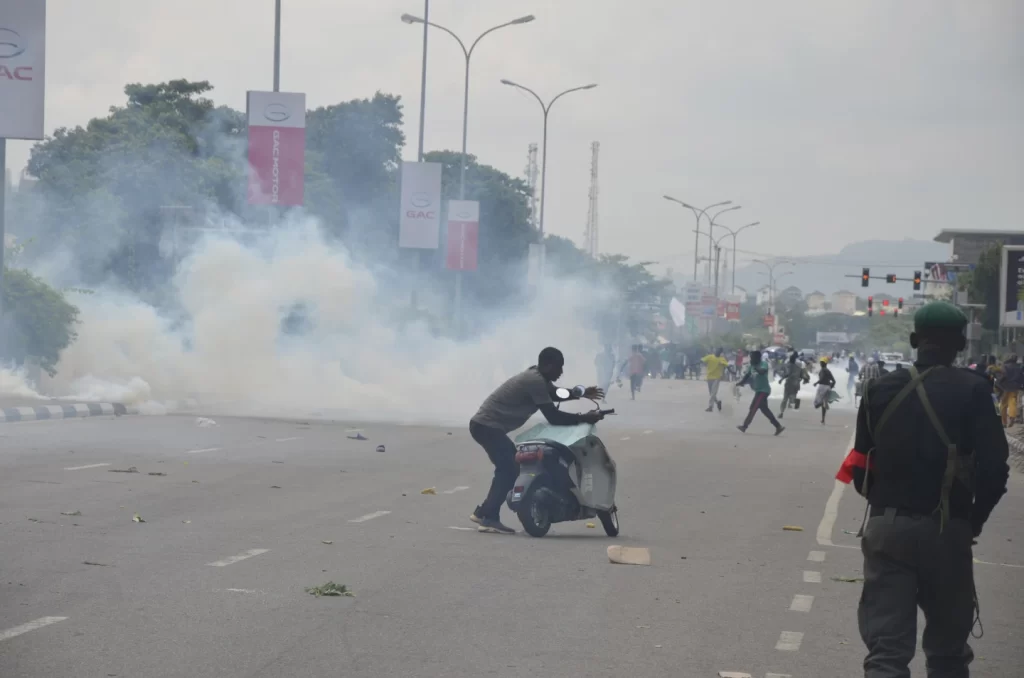At least nine people have been killed by security forces during mass demonstrations over economic crisis in Nigeria, according to rights group Amnesty International. Authorities reported that a police officer was also killed and several others injured in the clashes.

In the northeastern state of Borno, a bomb killed four protesters and injured 34 others. This region, affected by prolonged militant activity, has left millions displaced and facing hunger.
Nigerian police stated that over 300 protesters were arrested, and curfews were imposed in four northern states following the looting of government and public properties. National police chief Kayode Egbetokun announced that the police are on high alert and may seek military assistance.

Isa Sanusi, Amnesty International’s Nigeria director, said the group independently verified the reported deaths through witnesses, victims’ families, and lawyers.
The protests primarily focused on food shortages and accusations of misgovernment and corruption. Demonstrators, mostly young people, carried placards and Nigeria’s flag, demanding the reinstatement of gas and electricity subsidies that were recently canceled as part of economic reforms.
Violence and looting were concentrated in Nigeria’s northern states, which are among the hardest hit by hunger and insecurity. Protesters were seen carrying looted goods including furniture and cooking oil.

Police Chief Egbetokun stated that officers aimed to ensure peaceful conduct but claimed that events in some cities indicated “mass uprising and looting, not protest.” This claim was disputed by rights groups and activists.
Amnesty International’s Sanusi stated, “Our findings so far show that security personnel at the locations where lives were lost deliberately used tactics designed to kill.”
Authorities feared the protests could escalate similarly to the deadly 2020 demonstrations against police brutality or the recent violent tax hike protests in Kenya.
Anietie Ewang, a Nigerian researcher with Human Rights Watch, commented that the threats that emerged as protests turned violent in some places did not warrant the level of response from police officers.
The ongoing protests highlight the deep economic challenges facing Africa’s most populous country and the tensions between citizens and security forces as the nation grapples with these issues.



